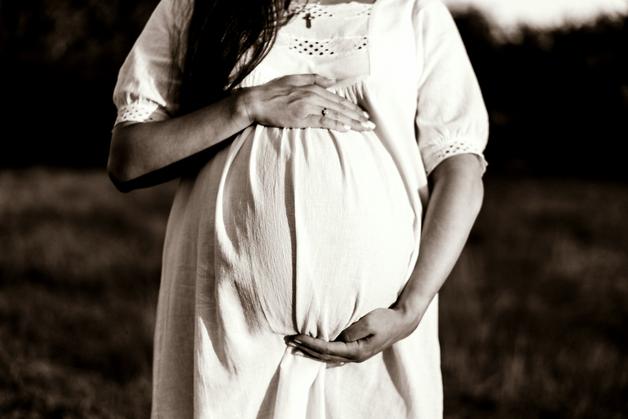When the idea of pregnancy feels distant, yet for months, life quietly grows within, the mind can weave a mysterious veil—one even the brightest medical science sometimes struggles to lift. Denial of pregnancy, with its unexpected pathways and silent signals, can leave both expecting mothers and their loved ones bewildered, searching for reassurance and clear answers. You might wonder: How is it possible not to notice a pregnancy? What if signs are missed? How can partners and family offer meaningful support, and what does it mean for the health of mother and baby? Let us unravel the medical facts, debunk misconceptions, and offer thoughtful advice for parents facing this often-hidden phenomenon.
Understanding denial of pregnancy involves untangling psychological mechanisms, recognising subtle or disguised symptoms, and understanding varied family reactions. From the delicate complexity of maternal mental health, the importance of supportive networks, up to the precise medical risks—each point demands empathy, clarity, and robust guidance.
Together, let’s explore the journey from recognition to recovery, equipping you with practical knowledge, medical explanations, and a reassuring outlook for your family and community.
Denial of Pregnancy: Core Facts, Frequency, and Why It Matters
Denial of pregnancy—sometimes called cryptic pregnancy or pregnancy denial—describes a circumstance both perplexing and surprisingly common: a woman remains unaware she is expecting a child for months, occasionally realising only when labour starts. Yes, this may sound implausible, but scientific studies report a rate close to 1 in 475 pregnancies crossing the 20th week still unrecognised, and almost 1 in 2,500 not acknowledged till delivery. In many instances, women experience minimal or unique symptoms, making it exceedingly easy for family or friends to miss even the smallest clues.
The real number may be much higher, obscured by secrecy or misunderstanding. Emotional reactions can be intense—shock, disbelief, worry for the baby’s health, or feelings of shame amid community silence. Public awareness and educating healthcare professionals are essential to encourage early intervention and reduce social judgement.
What Is Denial of Pregnancy? Medical and Psychological Viewpoints
Medically, denial of pregnancy means a woman is unaware—intellectually or emotionally—of her ongoing pregnancy well past the classic time when most start to show signs (over four months). Physicians sometimes call this an “invisible pregnancy,” because the usual bodily signals—a growing belly, breast changes, even movements from the baby—may be entirely absent, felt faintly, or misattributed to other conditions.
Several factors contribute: hormonal variations can disguise classic symptoms, and psychological defences may temporarily block awareness. Occasionally, continued bleeding resembling a regular period adds confusion, further concealing the growing life inside.
Denial of pregnancy is not simply “ignoring the truth”—it often springs from genuine unawareness, sometimes rooted deep in stress, emotional trauma, or a moment in life where motherhood seems unimaginable.
Types, Subtypes, and Special Cases
The Spectrum of Denial
- Partial denial: Awareness emerges between the fourth and ninth month, sometimes triggered by new symptoms or medical examinations.
- Total denial: Pregnancy remains unnoticed until delivery—often only when labour pain or sudden changes force a realisation.
Psychiatric Categories
- Psychotic Denial: Linked with underlying psychiatric disorders (such as schizophrenia), this form includes delusional explanations, distorted reality, and absolute disbelief despite obvious signs. Specialised psychiatric intervention is essential.
- Non-psychotic Denial: Far more common, this encompasses:
- Pervasive Denial: Total absence of both psychological and emotional recognition.
- Affective Denial: Intellectual realisation without emotional acceptance—like knowing the fact but feeling no attachment.
- Persistent Denial: Recognition surfaces late, sometimes even as denial (in a reduced form) continues.
Concealed Pregnancy
Here, a woman is well aware of her condition, yet consciously hides it from others—often due to social or familial pressures, stigma or practical reasons like fear of rejection. This, although distinct, frequently intertwines with community and psychological challenges seen in denial of pregnancy.
Nervous Pregnancy: The Flipside
Imagine experiencing all the signs of pregnancy—nausea, cravings, belly swelling—but medical tests return negative. This state, termed nervous pregnancy (also called “pseudocyesis”), reminds us of a peculiar connection between mind and body, sometimes echoing emotional longing or fear.
How Does the Baby Develop During Denial of Pregnancy?
Curious about the baby’s development when pregnancy goes unnoticed? Fascinatingly, the fetus often grows perfectly normally. The uterus may stretch vertically rather than forward—pressed lengthways along the spine—meaning the belly doesn’t protrude in the classic way. Traditional signs like abdominal growth, ligament stretching, or baby kicks may be muted or missed entirely, especially if the woman is busy or has a naturally larger body type.
When awareness suddenly dawns, it’s not uncommon for physical signs to emerge almost overnight—the belly softens and expands, sometimes within mere hours. This phenomenon, while dramatic, is well documented in the medical literature.
Causes and Influencing Factors
Denial of pregnancy arises from a complex interplay—never a single cause. At times, psychological processes provide a refuge: the subconscious mind “protects” by blocking awareness, especially after trauma, loss, or significant ambivalence about parenting. Research highlights associations with unresolved psychological conflicts, histories of abuse (notably sexual trauma), and chronic life stress.
On the biological side, persistent hormone fluctuations (involving progesterone, estrogen, and others), or conditions like polycystic ovary syndrome, can blur typical pregnancy signals. Continued or irregular bleeding further confuses the picture.
Importantly, there’s no typical profile—denial of pregnancy can touch women of any age, education, parental history, or social class. Prior pregnancy or a stable relationship does not provide immunity. Social stigma, lack of support, or cultural expectations can entrench isolation and silence.
Denial of Pregnancy: Signs and Symptoms to Watch
Wondering how a pregnancy can remain unnoticed? Parents (and clinicians) should be alert for the following, though the situation is often far from clear-cut:
- No visible weight gain—some only note a change afterwards.
- Absence of abdominal growth—uterus may shift in unusual directions.
- Lack of morning sickness, breast changes, or palpable baby movements.
- Ongoing menstruation or unpredictable bleeding that appears normal.
- General absence of pregnancy-related fatigue or vomiting.
Noticing odd pains that come and go, feeling bloated but with no explanation, or even subtle psychological shifts—all these can occur. Importantly, even in the absence of symptoms, a positive pregnancy test is still reliable. Medical confirmation via blood hormone levels (like hCG) or ultrasound is definitive.
Diagnosis and the Role of Healthcare Professionals
Late discovery is typical in denial of pregnancy. Some women seek care only when experiencing unexplained pain or emotional disturbances; some walk into emergency rooms in advanced labour, unaware till that very moment. For medical professionals, it can present a significant diagnostic challenge—a reminder to always consider pregnancy regardless of patient history when symptoms are unclear.
An ideal approach draws together obstetricians, psychologists, psychiatrists, and social workers, supporting the mother’s health while addressing her emotional and familial needs.
Family Reactions and Partner Involvement
Often, partners, parents, and friends are just as astonished as the woman herself—sometimes even more so. With no external clues and behaviour appearing unchanged, the realisation can spark disbelief, fear for the baby’s wellbeing, even feelings of guilt for not noticing earlier.
A supportive network becomes invaluable. Open, non-judgmental communication, reassurance, and gentle encouragement toward medical follow-up lay the foundation for healthy adaptation. Sometimes, reassurance that support is available is enough to reduce panic.
Psychological and Emotional Impact
When denial of pregnancy lifts—whether during late pregnancy or at birth—a wave of emotional shock may flood in. Parents can experience confusion, guilt, frustration, sometimes intense grief for the missed time of anticipation and bonding. For the mother, intense protectiveness towards the newborn is common—a biological and emotional drive to “catch up” on time lost.
Psychological support helps parents adjust to this abrupt transition, create secure attachment with the baby, and reduce risks like postpartum depression. Professional counselling, peer groups, and family involvement form the backbone of recovery for many families.
Maternal and Infant Complications: What Needs Attention?
Denied pregnancies inherently lack regular prenatal care. This increases risk for unassisted childbirth, medical emergencies like postpartum haemorrhage, infection, and physical trauma—especially when delivery occurs outside a medical setting.
For babies, risks include prematurity, low birth weight, and short-term breathing difficulties. Some studies report increased rates of neonatal hospitalisation or rare complications—though most babies are healthy in the long term.
Bonding challenges can arise. When maternal recognition develops abruptly after birth, moments of confusion and disconnection can briefly shadow early interactions, but with sensitive support, positive adaptation usually follows.
In severe psychiatric cases, especially in the context of psychotic denial, the risk of neglect increases—hence the importance of rapid intervention and safeguarding for both mother and child.
Welcoming the Child After Denial of Pregnancy
The first days can be a whirlwind—new routines, persistent questions, overwhelming responsibility. Most mothers, despite initial shock, rapidly form a strong, nurturing bond with their baby. The protective instinct may even intensify—a natural “catching up” process to bridge those unexpected missing months.
Parents should remember: emotional adjustment takes time. Turn to trusted relatives, friends, health professionals, or parenting groups. Regular check-ups, open heartfelt conversations, and an accepting attitude serve as pillars for healthy family dynamics.
Social, Emotional, and Professional Support: Heading Towards Healing
After denial of pregnancy, emotional recovery and regaining confidence may feel daunting. Regular check-ins with mental health professionals, maternal support groups, or skilled counsellors offer perspective, tools, and reassurance—helping parents replace shame or confusion with resilience and optimism.
Community education remains essential— combatting stigma, nurturing empathy, and encouraging practical help. When multidisciplinary support is in place, families can refocus on adaptation, bonding, and future well-being.
Legal and Ethical Considerations
Occasionally, legal and ethical dilemmas surface—especially if denial intertwines with severe mental illness, one that impairs judgement or informed consent. Balancing the wishes of the mother, the best interests of the infant, and respect for patient autonomy requires sensitivity, consultation with legal or ethical advisers, and coordinated healthcare support.
Compulsory treatments are rare, used only if incapacity threatens safety. In every decision, respect for the family’s dignity stands alongside the wellbeing of the child.
Education, Prevention, and Raising Awareness
Preventing difficulties associated with denial of pregnancy depends on professional vigilance and robust awareness campaigns. Training healthcare providers to consider subtle presentations, supporting psychological well-being at reproductive age, and encouraging regular, stigma-free consultation breaks the silence and supports healthy outcomes. Engaging families and communities in open discussion, sharing evidence-based information, and promoting mental health resources help reduce risks.
A strong support network and routine mental health follow-up after childbirth (especially when denial has occurred) are powerful tools for future resilience.
Key Takeaways
- Denial of pregnancy is a medically recognised condition, more common than most expect.
- Psychological, social, and biological influences can all contribute—no single profile exists.
- Early detection through routine testing, multidisciplinary support, and clear information provides the best outcomes for parents and children.
- Open conversation, family warmth, and professional help are essential—especially for mothers needing time to adjust.
- Legal and ethical questions may arise, especially when psychiatric conditions impact decision making.
- Growing medical and social awareness empower families to seek timely help and reduce stigma.
- And most importantly: support is available—parents can always reach out for compassionate care. You can download the application Heloa to access personalised advice and free health questionnaires for your child’s well-being.
Questions Parents Ask
Can denial of pregnancy affect future pregnancies?
Every pregnancy is a different journey. If denial of pregnancy has occurred once, it does not mean it will happen again. Many women go on to have ordinary pregnancies next time. Emotional support, medical check-ups, and honest conversations with healthcare providers help set the stage for a reassuring experience ahead.
How can partners or family members support someone going through denial of pregnancy?
Gentle, understanding support makes all the difference. Offer a listening ear. Encourage seeking medical guidance, but avoid judgement. Let them know you are present for every step ahead. Sometimes, a calm conversation or professional involvement can ease the transition for everyone.
Does denial of pregnancy occur only in certain age groups or backgrounds?
Absolutely not. Denial of pregnancy can appear in any age group, background, or family situation—there is no predictable pattern. Situational stress, individual experiences, or cultural factors may play a role, but no family is automatically protected or at fault.
What are the main risks associated with denial of pregnancy?
Delayed medical care can mean a higher chance of unmonitored childbirth, medical emergencies like bleeding or infection, and sometimes difficult emotional recovery. Prompt recognition, reaching out for help, and community support can all reduce risks and promote healthy results.
What steps should be taken once denial of pregnancy is discovered?
Contact a healthcare provider for a full examination and support planning. Early involvement of obstetricians and mental health specialists makes adjustment smoother. Regular follow-up, family engagement, and support groups empower parents to move forward positively.









